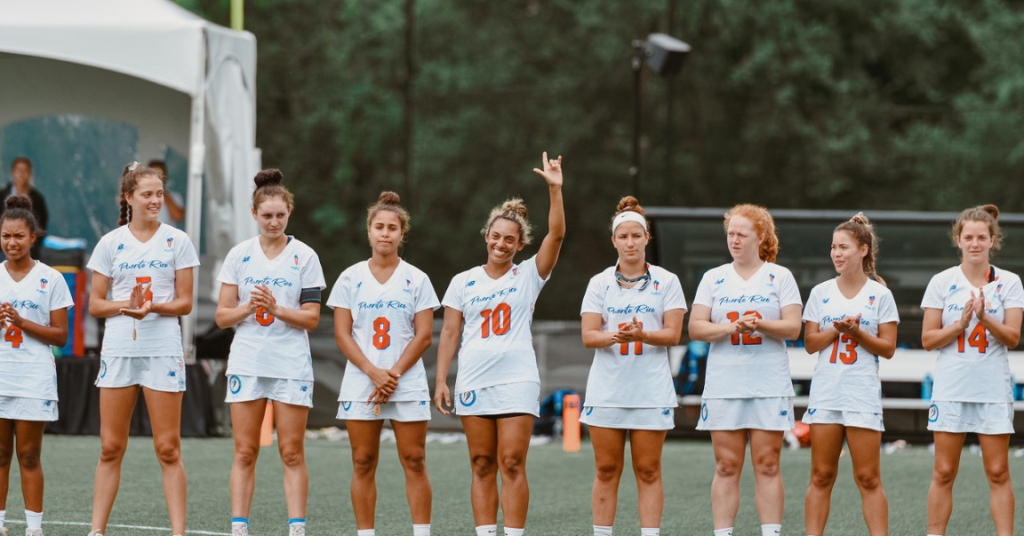
Celebrating the diversity of deafness
January 22, 2018
4 tips for living in a dorm with hearing loss
January 23, 20187 ways to get deaf kids involved in sports

Whether it’s a coach’s whistle or the shout of a teammate before a pass, communication is important in sports. Those with hearing loss may need to find adjustments in their skills, but it doesn’t mean they can’t participate, or even be world-class athletes!
As a swimmer with hearing loss, I’ve faced these challenges head-on, and I’ve found ways to overcome them, to the point where I even worked as a lifeguard.
From swimming to rugby there are limitless opportunities for children with hearing loss to play sports – both on hearing and deaf teams. If you need some inspiration, here are are some tips to help children with hearing loss get involved in sports.
7 ways to get deaf kids involved in sports
1. Choose a sport and encourage them to join a local team or club
Encourage the child that although they have a hearing loss, doesn’t mean they can’t join a club. There are lots of ways around it.
With joining a club, not only are they participating in something that they love or enjoy but they are also boosting their confidence. They would be able to engage and socialize with others.
If it’s a contact sport then head protection will be provided. With water sports, there are ways to communicate when hearing devices are removed.
Read more: 5 Tips for Teaching Deaf Children to Swim
Read more: 3 Tips for Playing Contact Sports with Hearing Loss
2. Identify communication requirements
Before starting a new sport, try to identify what the communication requirements are for both the athlete and the coaches/teammates. Communication could be done with speech, lip-reading, sign language, or a combination of these methods.
If you think there’s something stopping your child from joining a club or sport, talk to the governing body of the sport, as there are always ways to provide accessibility.
3. Explaining to their teammates
It’s important is that everyone feels like they have an equal playing field to form the base of their team, so explaining the hearing needs to the coach and teammates can be very valuable.
If the deaf child is happy to, have them explain to their peers about their communication requirements. It might be also making their peers aware that they might need to come to the front during team briefings, so they get the information clearer than if they were stood behind others.
Simple tips can be given, for example, try to face them so they can lipread, or to tap their shoulder to get attention. You can get them to practice in pairs of getting each other’s attention and facing them/speaking clearly.
Consider using simple signs relating to the sport, which can be used throughout the game. This already works in games such as football. Sometimes hand gestures are the best way to communicate in sports.
4. Team-building exercises
Team building exercises are a fantastic way teammates to get to know each other. It’s good to build trust and bring the team together, and it’s a good way to help them make new friends. There are lots of activities, take some time to research some that would be best fitted toward the sport they are doing.
5. Work out what’s best for the deaf child in the sport
Over a few sessions, you’ll come to work out what works best for the deaf child and what doesn’t. For example, they might find group situations more difficult to understand, so if there is someone available to work one to one with the child, or perhaps offer one to one sessions so they don’t miss out.
There might be cruical noises involved in the sport, for example a whistle, timer, buzzer or vocal calls. Identify ways to replace them or use gestures with them, for example if blowing the whistle, put one arm in the air. For vocal calls, encourage more gestures and/or sport related signs to be used in the sessions so the deaf child can feel included.
When giving out demonstrations, instructions or even safety briefings ensure they are given out before the sport starts and if the deaf child removes their hearing aids, ensure it’s done before they remove them to save them keep putting the technology back on.
Read more: How to handle communication in water sports when the hearing aids come off
If the child is still having communication challenges with a hearing team, perhaps ask if they would consider joining a local deaf team. It doesn’t mean they aren’t good enough for the hearing team, it’s that the deaf team might be much more aware and have all the communication requirements they need. With the deaf team, they might feel they have more in common with each other than hearing peers.
6. Inspire them to follow deaf sports ambassadors
If the deaf child feels like they aren’t as good enough or cannot achieve like hearing peers, encourage them to look at deaf sportsmen and women or deaf sports clubs and it might encourage them to follow in their footsteps. If they can see where they started and what they’ve accomplished after, it’s inspiring for them!
Read more:
Deaf golfer Kaylin Yost wins Deaf Olympics
How we started a deaf Rugby team in South Africa
4 deaf baseball players you probably didn’t know about
4 deaf NFL players you probably didn’t know about
7. Have fun!
Last of all and most importantly, have fun! It’s not all competitive, some take part in sports for the leisure and hobby side of it.
Are you a deaf athlete? Do you have any other tips to play sports with hearing loss? Let us know in the comments!



